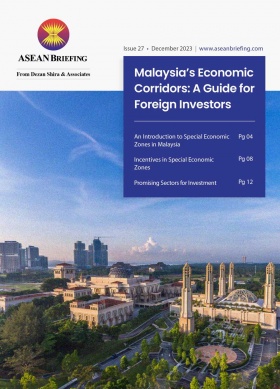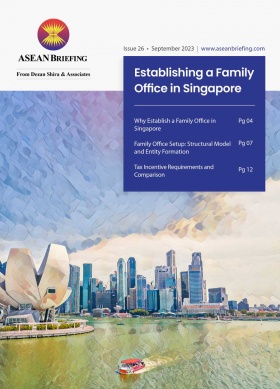Singapore Signs FTA With MERCOSUR Bloc
Singapore has signed a free trade agreement with the MERCOSUR trade bloc which consists of Brazil, Paraguay, Argentina, and Uruguay (Venezuela’s membership was suspended in 2016) under the MERCOSUR-Singapore Free Trade Agreement (MCSFTA). This is Singapore’s first FTA with these individual countries as well as with the Mercosur bloc.
Singapore also signed an FTA with another Latin American trade alliance, the Pacific Alliance, which comprises Peru, Mexico, Chile, and Colombia. Through the MCSFTA, Singapore, and MERCOSUR will aim to lower trade tariffs and ease of investment conditions, particularly for small and medium-sized enterprises.
MERCOSUR has a combined population of more than 295 million people and a GDP of US$2.2 trillion. Singapore’s total trade with the bloc accounts for half its trade with Latin America, totaling an estimated S$10 billion (US$7.5 billion) in 2022.
Over 100 Singaporean companies are based in the MERCOSUR markets, operating in sectors such as energy, agri-business, manufacturing, hospitality, and infrastructure. Examples include Changi Airports International, Wilmar International Limited, and SEA Group. There are more than 100 MERCOSUR companies registered in Singapore.
Key highlights of the FTA
Trade in goods
MERCOSUR will gradually decrease import tariffs for approximately 96 percent of products over the next 15 years. There is immediate tariff-free access for 25 percent of the products.
In addition to facilitating market access, the MCSFTA will encourage greater transparency in simplifying custom procedures, competition law enforcement, e-commerce, and cybersecurity.
Trade in services
The MCSFTA aims to develop a more favorable business environment to grant market access for businesses in R&D services, construction, and IT services.
Rules of origin
Singapore-based exporters will enjoy flexible rules of origin for goods to qualify for preferential tariffs when imported by a MERCOSUR member.
Government regulation
Singapore companies will be afforded non-discriminatory and fair treatment for when competing for government contracts in MERCOSUR markets. Moreover, MERCOSUR-based companies will be afforded equal opportunity to compete in Singapore government contracts.
MSMEs
The MCSFTA aims to help facilitate the expansion of MSMEs to both jurisdictions through cooperation in capacity building.
E-commerce
The FTA will promote paperless trading and digital trade facilitation while also strengthening trust in the digital economy through stronger online consumer protection.
Singapore as a gateway to Southeast Asia for MERCOSUR companies
Singapore has long been a preeminent destination for setting up a regional headquarters to pursue business opportunities across Southeast Asia and Asia. This has been attributed to the country’s favorable taxation and legal regimes, enabling the city-state to develop into a global financial hub and attracting more than 37,000 international companies and 7,000 multinational companies.
More than ever, Singapore’s importance as a base for entry into the Southeast Asian markets is growing. As such, developing an effective investment strategy that uses Singapore as the base can help foreign investors reduce investment risk, maximize profit, and harness the region’s diversity.
Other key factors as to why MERCOSUR businesses should invest in Singapore
A pro-business environment
Singapore is globally renowned as a business-friendly destination with a stable socio-political environment, a free market economy, highly efficient infrastructure, and an attractive tax regime.
As such, a primary advantage of Singapore is its ability to act as a centerpiece for the holding and management of regional assets. Holding companies are a vital component of any international expansion strategy, and Singapore offers investors a stable environment from which to administer operations in more speculative markets in Asia.
Registering a company can take as little as one day — provided all the files are in order and the minimum paid-up capital is only S$1 (US$0.73).
Singapore’s extensive free trade agreements
Despite regional players maintaining strong FTA networks, they are not as extensive as Singapore’s. Due to these factors, the country will continue to be the default location for businesses seeking to expand into Southeast Asia and neighboring regions.
The country’s 14 bilateral and 13 regional FTAs include some of the largest combined trade agreements in the ASEAN-China, ASEAN-India, and ASEAN-Hong Kong trade blocs — providing Singapore-based businesses with access to preferential markets, free or reduced import tariffs, as well as enhanced intellectual property regulations.
Conclusion
Singapore’s positioning as a gateway to Southeast Asia becomes more pronounced with this agreement, offering MERCOSUR companies a stable, business-friendly environment, access to a vast network of free trade agreements, and a robust infrastructure for regional expansion. The country’s appeal as a hub for international businesses seeking entry into diverse Asian markets is bolstered by its pro-business policies, efficient regulatory frameworks, and extensive trade networks.
About Us
ASEAN Briefing is produced by Dezan Shira & Associates. The firm assists foreign investors throughout Asia and maintains offices throughout ASEAN, including in Singapore, Hanoi, Ho Chi Minh City, and Da Nang in Vietnam, in addition to Jakarta, in Indonesia. We also have partner firms in Malaysia, the Philippines, and Thailand as well as our practices in China and India. Please contact us at asean@dezshira.com or visit our website at www.dezshira.com.






